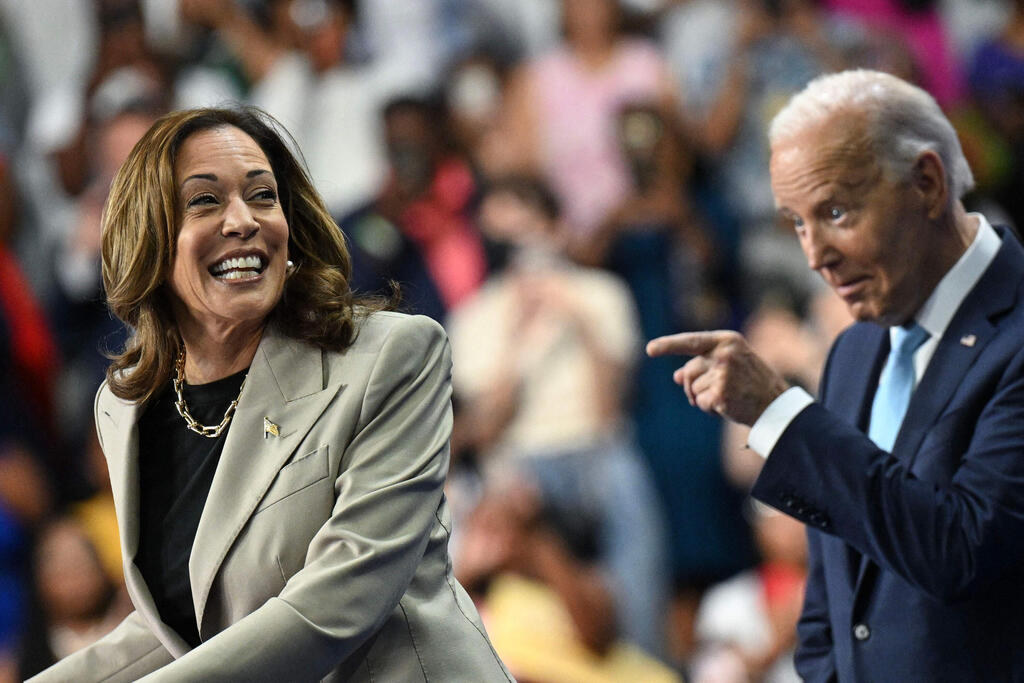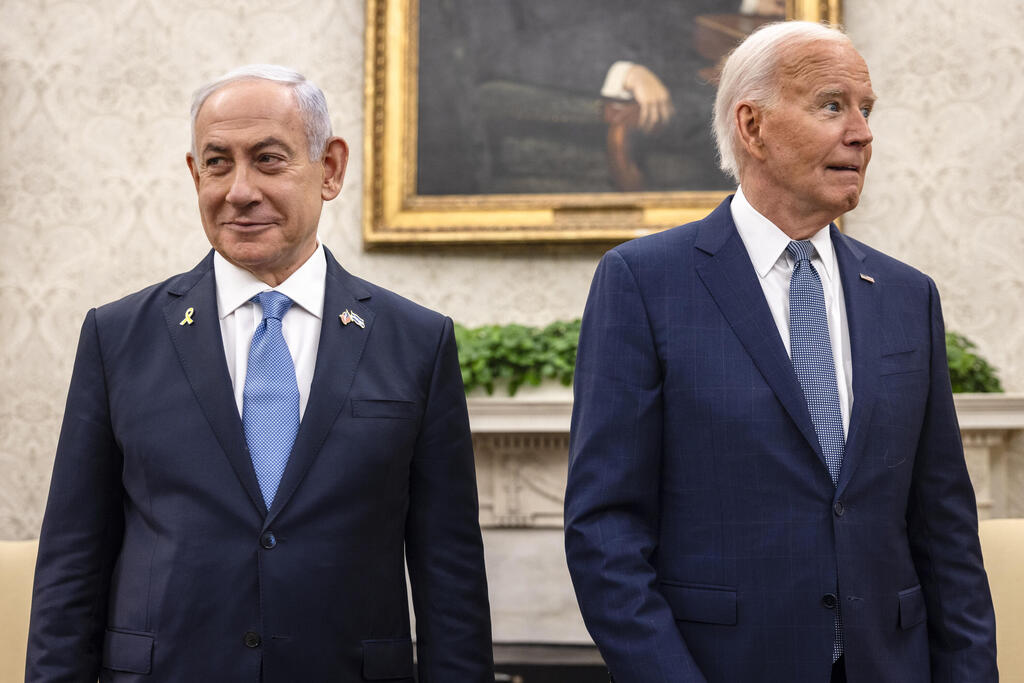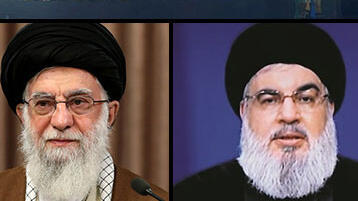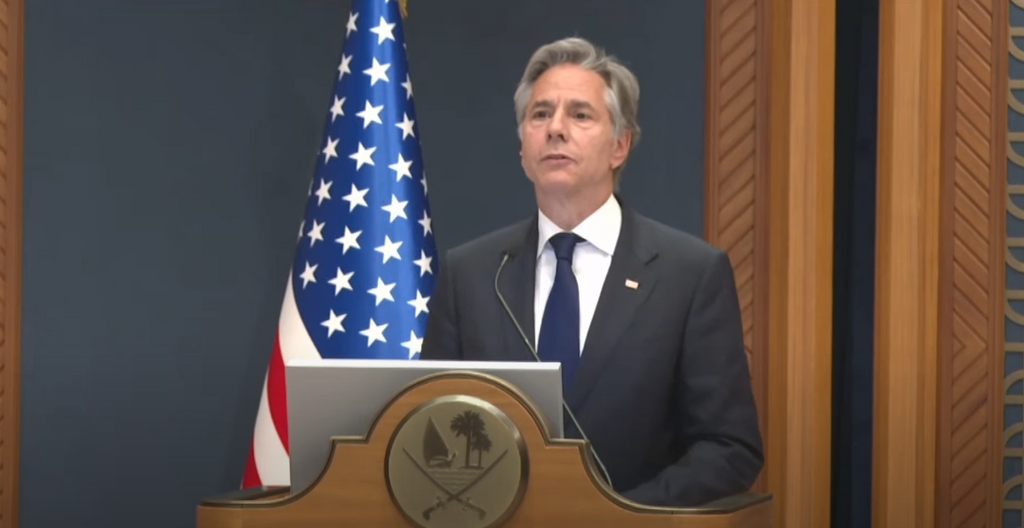Getting your Trinity Audio player ready...
Negotiations for a hostage release and an end to the war in Gaza, which began on Thursday in Doha, Qatar, are part of a larger strategic move by the Biden administration aimed at ending the conflict in the Middle East before the final stages of the U.S. presidential election campaign.
The release of hostages is a top priority, not only because of the personal concern of President Joe Biden and Vice President Kamala Harris but also because it is seen as the key to stabilizing the region and preventing a broader regional war in which none of the parties involved is interested.
Initially, the U.S. administration had planned a more limited operation focused on ending the fighting in Gaza and securing the hostages' release. However, this effort expanded into a broader regional opportunity following the assassinations of Hezbollah's military chief Fuad Shukr in Beirut and Hamas' political bureau head Ismail Haniyeh in Tehran.
The assassination of Haniyeh, which Iran attributed to Israel, raised fears in Washington of potential retaliation that could spiral into a full-scale regional conflict, jeopardizing the Biden administration's electoral prospects.
In response, Washington ramped up its efforts, utilizing diplomatic channels and military pressure to achieve its goals. The U.S. has identified Prime Minister Benjamin Netanyahu and Hamas leader Yahya Sinwar as major obstacles to a deal, with the Iranian Revolutionary Guard and Supreme Leader Ali Khamenei as the primary barriers to preventing a regional war.
The Biden administration is facing significant hurdles in its attempts to negotiate with Sinwar, as it lacks direct communication channels or the leverage to apply direct pressure. Consequently, Washington has turned to Qatar for mediation, with Qatari officials reportedly showing more commitment than in past efforts. While the exact terms and pressures involved remain unclear, it is believed these negotiations are crucial for the post-war survival of Hamas and Sinwar.
Qatar's increased involvement has sparked cautious optimism among negotiators in Doha. Beyond Qatar, the U.S. has also intensified pressure on Egypt to find an acceptable solution for the Rafah border crossing and the Philadelphi Corridor.
In Israel, the Biden administration is well aware of Netanyahu's delicate position, balancing between the far-right elements in his government and the public and security establishment's push for a hostage deal. U.S. pressure on Netanyahu has included high-profile interviews with Israeli media, tense discussions between Biden and Netanyahu and leaked comments from U.S. officials indicating that Israel may have reached the limits of its military strategy in Gaza. These efforts aim to push Netanyahu toward compromise in negotiations, with warnings that further resistance could damage Israel's standing on the global stage.
In a bid to exert influence on Netanyahu and Israel, Washington has ramped up its military support to Israel, removing previous bottlenecks in military aid deliveries. Over the past ten days, large U.S. transport planes have been landing at Israel’s Nevatim Airbase at a rate of two per day, alongside naval vessels arriving or en route to Israeli ports.
Moreover, the U.S. has bolstered its naval and air forces across the Middle East, not only to counter potential Iranian retaliatory strikes but also to position American forces for possible action against Iranian proxies should a regional conflict erupt.
This military buildup, significantly larger than the deployment seen following Iran’s missile and drone strikes last April, serves a dual purpose: deterring Iran from launching an attack that could provoke a severe Israeli response and potentially convincing Tehran to delay or entirely avoid such a strike.
The deployment of this formidable U.S. task force is also intended to reassure Netanyahu that he can rely on American support, encouraging him to show greater flexibility in negotiations.
5 View gallery
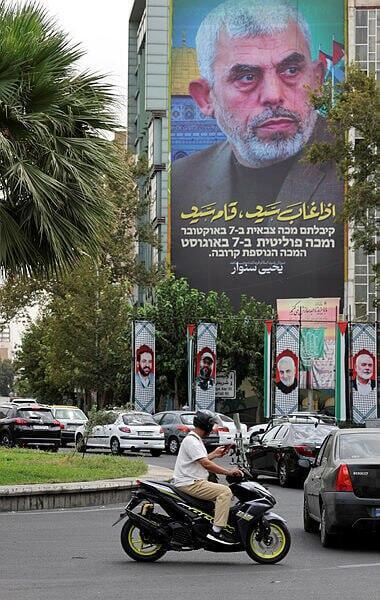

Hamas leader Yahyah Sinwar on billboard in Terhan's Palestine Square
(Photo: EPA/ABEDIN TAHERKENAREH)
However, the primary audience for this show of force appears to be Iran’s newly elected president, Masoud Pezeshkian, and his supporters. Iran's economic situation is dire, and Pezeshkian won the election by promising to rescue the country from its economic crisis and international isolation—an objective that could be severely compromised by further regional conflict.
Pezeshkian may not have needed the full might of CENTCOM's naval and air forces, now positioned in a strategic arc from the Strait of Hormuz to the Mediterranean. However, the American military presence, coupled with President Biden's clear warnings of economic sanctions, has reportedly played a key role in convincing Pezeshkian’s rivals in the Revolutionary Guards—and even Supreme Leader Khamenei—to hold off on any immediate retaliation.
Yet, the U.S. efforts to contain Iran go beyond military posturing. The Biden administration has enlisted its allies to pressure Iran and Hezbollah’s Hassan Nasrallah to delay any retaliatory moves until the outcome of ongoing negotiations between Israel and Hamas becomes clear. The U.S. is astutely capitalizing on Iran and Hezbollah's reluctance to trigger a full-scale regional conflict at this time.
Moreover, Tehran is well aware that both Sinwar and the Gazan population are desperate for a cease-fire, as Israel's intensified military actions continue to escalate the crisis. Hamas officials in Doha are reportedly conveying the gravity of the situation to Iran, which is keen to ensure Hamas' survival, recognizing the group's importance in its broader strategy against Israel.
Iran and Hezbollah's retaliation - the disputes behind the scenes
Tehran and Hezbollah now have a vested interest in a cease-fire, one that would allow them to step back from the brink reached on October 8 and avoid a regional war that neither Iran nor Lebanon wants. A cease-fire would also ensure Hamas' survival, enabling it to continue its campaign against Israel.
The Biden administration has shrewdly recognized this alignment of interests and moved to involve Iran in the peace efforts—something that hasn't been attempted until now. Qatari Prime Minister Mohammed Al-Thani has been engaged in securing Khamenei's cooperation, regularly updating Iranian President Pezeshkian on the progress of the talks over the past week.
The goal is to keep Iranian Supreme Leader Khamenei informed, effectively making him a silent but active participant in negotiations aimed at ending the Gaza war and preventing a wider regional conflict.
Iran has its own methods for communicating its demands to the Hamas leadership and Sinwar. In the ongoing negotiations, officially centered on the release of hostages and ending the fighting in Gaza, Iran and Hezbollah have become quiet but influential players. Both have reportedly informed the U.S., according to Washington sources, that they are holding off on any retaliatory strikes against Israel until it becomes clear whether a deal is achievable or if those prospects have been exhausted.
In this context, it's important to recognize that Iran and Hezbollah are not simply accommodating the Americans and Qataris. It is highly likely that Nasrallah is advocating for a coordinated retaliatory strike from both Iran and Hezbollah, potentially even synchronizing their efforts. Hezbollah’s strategy appears to be aimed at forcing the IDF to divide its military response between Iran and Lebanon, thereby diluting the impact of Israel's retaliation on Hezbollah. For Nasrallah, ensuring that the Israeli Air Force is stretched across multiple fronts is critical.
Similarly, Iran seems hesitant to strike Israel first, possibly to maintain the option of avoiding a direct missile and drone confrontation. Instead, Iran may pursue its goals by targeting Israeli interests abroad or through other means. Unlike Nasrallah, Iran does not feel the same urgency to avenge the killing of Haniyeh, as Hezbollah does regarding Shukr. A potential compromise could involve staggered strikes—Hezbollah acting first, followed by Iran, whose response might resemble its actions in April.
The U.S.-led effort to secure the release of hostages, stabilize the Middle East and prevent a broader regional war remains in full swing. The pressure campaign has intensified: the U.S. recently honored Qatar’s intelligence chief Abdullah bin Mohammed Al Khalifa with a prestigious CIA medal for his critical role in pressuring Hamas and engaging with the Iranians. CIA Director Bill Burns, currently in Doha, personally awarded Al Khalifa the George Tenet Medal “for his contribution to intelligence cooperation between the two countries.”
Meanwhile, U.S. Secretary of State Antony Blinken is expected to have a "personal and pressing" meeting with Netanyahu in Jerusalem, likely on Sunday or Monday. Blinken’s aim will be to persuade Netanyahu to demonstrate flexibility and take political risks for the broader strategic goal. Blinken is expected to stress that the American strategy—potentially resolving the conflict with Hezbollah in the north as well—is as vital for Israel as it is for the Biden-Harris administration.
Negotiations over the hostage deal and the cessation of hostilities, which are central to the success of the overall strategy, will continue into the coming week and possibly beyond. However, the American strategic initiative, which aligns the interests of all parties and employs every available pressure and incentive, appears to have a strong chance of success.



